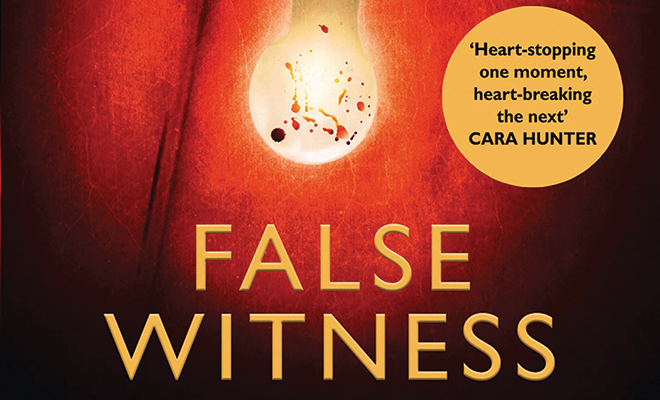
False Witness by Karin Slaughter
“Karin Slaughter’s False Witness is a twisty, searingly contemporary mystery steeped in a dark past, and she weaves a story that catches your breath and keeps you gasping and guessing until the end.”
Writer Stacy Abrams’ note on the book jacket sums up False Witness, categorized as mystery-crime thriller, perfectly. I discovered Slaughter’s work about 15 years ago and have sped through the majority of her works during many late-night, can’t-put-down sessions. She doesn’t avoid the gruesome details of family/crime/psychological trauma. Her writing’s realism about the nastier, pathological sides of human nature have prevented me from presenting her books in HERLIFE. But here goes.
False Witness is a present-day compelling picture of trauma and life in the year 2021in the greater Atlanta, Georgia, area, where Slaughter lives and where many of her novels are set. The story is told alternating the historical and present-day realities of attorney Leigh Collier and her younger sister, Callie. The pressures of keeping her family safe as she practices law during COVID are overwhelming her; Callie continues to self-medicate following a gymnastics injury as a teenager.
We meet Callie in 1998 as the babysitter to Trevor Waleski, son of Linda and Buddy Waleski, a timid, odd child whose energy reminds her of a “coiled spring.” Callie’s one of a succession of babysitters that Trevor’s behaviors have driven away. She’s putting a batch of cookies in the oven. “Trevor suddenly appeared behind her like a serial killer. He threw his arms around her, saying, ‘I love you.’” Warning number one, on the first page.
Leigh Collier, chapter two, is watching her 16-year-old daughter, Maddy, in her private school’s play. She and Maddy’s father, Walter Collier, were divorced, but during lockdown they had ended up back together as a family. Now, Walter and Maddy live in the suburbs where he can practice his legal profession from home. Leigh practices defense law at a large and legendary law firm in the city and lives in their urban condo; she still has to go to the office, meet with clients, go to the courthouse and conduct trials. Before the play concludes, Leigh receives a text from Octavia, a fellow attorney, who forwards a link to a news story about an accused rapist. It’s followed by a call from Cole Bradley, the attorney who started the huge firm. “I’ve got a delicate matter that requires your immediate attention. The client asked for you specifically. He’s waiting in my office as we speak; his name is Andrew Tenant. I trust you’ve heard of him.”
Leigh recognizes the name of the accused rapist from the article. “I’ll be there in 30 minutes.” The client had fired Octavia two days before with no explanation; just two hours ago, she was directed to forward her case files to the firm, attention Leigh Collier. How did he know her name? Bradley hadn’t even known it until that night.
Bradley meets her in the elevator and briefs her, asking, “How do you feel about rape?” He ushers her into his extravagant personal meeting space to meet the client, his mother, Linda, and his girlfriend, Sid. Mother and son clearly thought Leigh knew them. “Hello, Harleigh, it’s been a long time,” said Andrew Tenant. “I thought you’d forgotten all about me,” Harleigh. Only one person still called her by that name.
She has one week, an angst- and guilt-ridden period, to get ready for trial. During that time, she plumbs the depth of the last 20 years of her family dysfunction, her history with Andrew Trevor Tenant, her tangled relationship with her sister, while preparing to defend a client she strongly suspects is guilty of this charge and probably others.
Callie and Leigh are close, and the novel is as much about her life and behavior as a junkie as Leigh’s life as a high-priced attorney. It’s a lurid portrait, but Callie is intelligent and has survived the hard streets of Atlanta following stints in juvie and a couple of times she successfully negotiated rehab. That’s a teaser. Look for it.
Put away your prejudices and put on a thick skin as you read False Witness. The action is fast, twistingly thrilling, and, as usual, Slaughter’s characterizations are full of depth. If you’re not familiar with her already, my advice is to start with Triptych and Blindsighted and work your way through until they meet. The stand-alone novels are just as arresting.
Karin Slaughter’s work has been published in 120 countries and has sold more than 35 million copies, including the Grant County and Will Trent series, the Edgar-nominated Cop Town and four stand-alone novels. She is the founder of the Save the Libraries project, a nonprofit established to support libraries and literary programming. Pieces of Her is in production with Netflix, and the Grant County and Will Trent books are in development for television.







